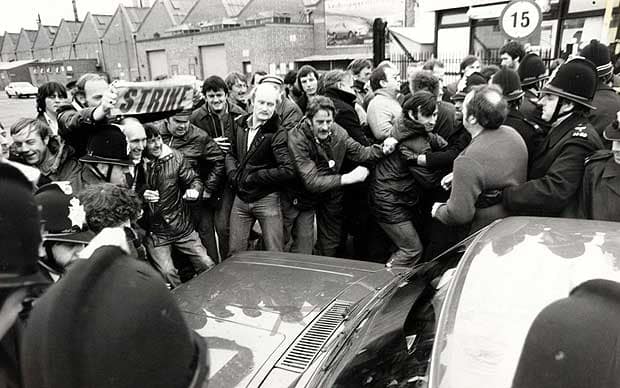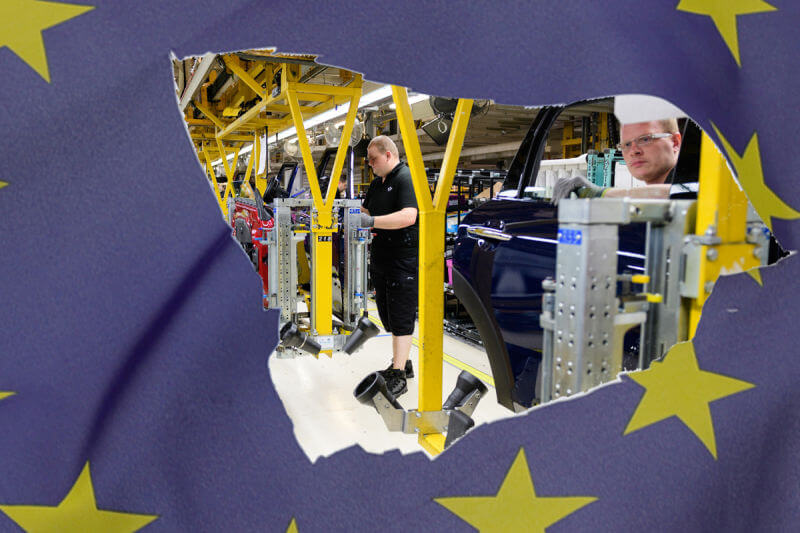UK car industry may go back to dark days of 1970s after Brexit

UK car industry may go back to dark days of 1970s after Brexit
While the motor sector is generally in good health at the moment, some believe that the UK Brexit decision will have disastrous results going forward.
Right now Britain’s automotive industry is as vibrant as a global manufacturing hub can be. For example, the Toyota plant at Burnaston which make the Auris and the Avensis continue to export their cars beyond British borders. Toyota also buys parts and hires workers from all over the European Union.
However, because of the Brexit vote, Britain’s car makers will remain vulnerable after the UK leaves the EU. If it transpires that the breakup is messy, Toyota and other car manufacturers in the UK face the prospect of higher tariffs, a much smaller labour pool and less access to the huge European customer base of 500 million people, many being potential customers.
The drop in the British Pound hasn’t helped much as well. Many of the car manufacturers contracts in the UK are priced in Euro’s even if the suppliers are in the same country, such as Johnson Controls, which make the seats for Toyota.
Anthony J. Walker, deputy managing director of Toyota Manufacturing in Britain has said, “We have made clear that if we lose some of these elements, it will make making cars in the UK less competitive,” he went on to say, “We would have to reduce costs, which would be very hard.”
Short supply
Car manufacturers are now in full defence mode with Toyota and other makers telling the government, in no uncertain terms that they need full, unfettered access to the European Union for exports, imports, engineering talent and other personnel who are key to their business. Within the European Union currently, the United Kingdom have full access to all these resources.
It is unknown at this time how Toyota’s ‘just-in-time’ manufacturing system will be affected by Brexit as the system provides for the facilitation of parts arriving at the plant just hours before assembly. If any part of the system is affected by Brexit it will inevitably lead to disruption.
Peter Tsouvallaris, the Toyota plant’s senior representative for the union Unite, which represents workers at other carmakers said, “It is absolutely suicidal,” he went on to say, “I am concerned about the long-term future of the plant because we don’t know what Brexit means.”
What this means is that many workers are very concerned about any adverse effect of the Brexit decision. These concerns are not lost on the British government either. It is high-stakes now as the UK’s exit from the EU looms heavy on the horizon. The UK is home to a cluster of world-class plants such as Nissan, General Motors, BMW and Honda. In the UK, the car sector employs over 169,000 people and according to the Society of Motor Manufacturers & Traders this alone accounts for about 12 per cent of the value of British Exports.
 The dark days of the UK car industry
The dark days of the UK car industrySingle market
Over the decades Britain has developed many car designs and they have shown quite a flair in car manufacturing with cars like the Jaguar XKE and Austin-Healey Sprite. Despite a long history in car making in Britain, the industry took a nose dive in the 1960’s and 1970’s from underinvestment, dated models, poor quality and frequent strikes.
This began to change in the 1980s when Japanese carmakers began to look for a foothold in Europe to gain access to the single market. Britain welcomed this new foreign investment from other markets such as Japan.
Toyota came in the early 1990s, cleared a large site in central England to the company’s specifications and brought in new and more efficient production methods.
“The Japanese completely reversed what was going on,” said Garel Rhys, a professor emeritus of motor industry economics at Cardiff University. “They showed that Britain was not a place that was out of control.”
Other companies soon followed. BMW came to Oxford in the early 2000s. Later that decade, Tata of India took over the very British brands, Jaguar and Land Rover. All of these acquisitions have helped to boost the British economy.
Last year 1.6 million cars were built. Although this figure is much smaller than in the United States and Japan it leaves it roughly level with France as Europe’s third-biggest carmaker after Spain and Germany.
To date, Toyota has invested £2.2 billion in the Burnaston plant and also another engine plant in Wales. Together, they employ around 3,200 people and producing about 30 per cent of the company’s cars in Europe.

Competing interests
With Brexit looming, there is a lot of uncertainty in the automotive industry in the UK. This will most certainly have some effect on the Irish car market as well. The British prime minister wants to start negotiations in early 2017 on the terms of the country’s exit from the European Union.
No one really knows what will eventually happen but there are competing interests at play with the car manufacturers now putting their industry in the middle of a potential fraught negotiation.
What will happen in the future with regard to Brexit and it affects on car manufacturing in Britain remains to be seen.
Author

Justin Kavanagh
Justin Kavanagh is a recognised leader
in automotive intelligence and vehicle
data supply to the entire motor industry.
He has almost 20 years experience in
building systems from the ground up.
As the Managing Director of Vehicle
Management System, he understands the
need and importance of trustworthy and
reliable vehicle history and advice to
both the trade and the public.
Follow me on LinkedIn
